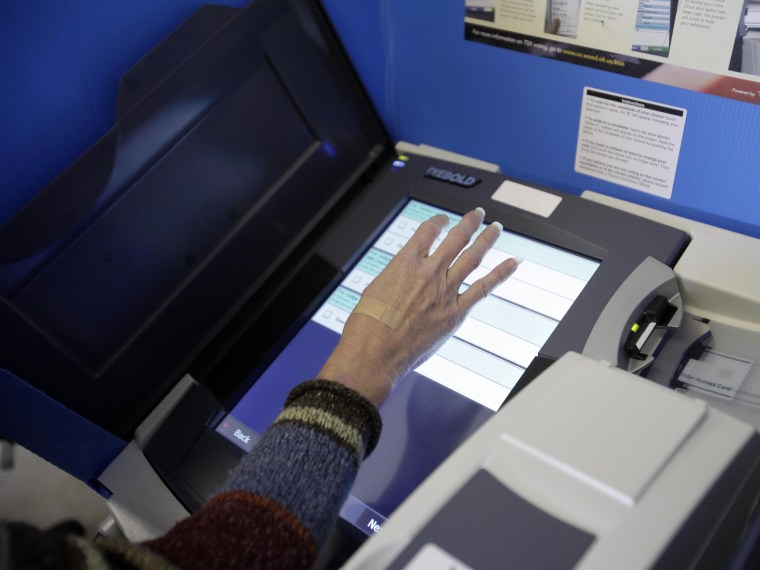America’s voting machines are reaching the end of their lifespans, and many states appear unwilling to spend the money to replace them, a detailed new report warns. The impasse raises the threat of a catastrophic meltdown in next year’s presidential election. The report, released Tuesday by the Brennan Center for Justice, paints an alarming picture. Experts say today’s machines have an expected lifespan of 10 to 20 years -- closer to 10. But in most states, a majority of jurisdictions have at least some machines that were bought in 2006 or earlier, while in 11 states -- including presidential battlegrounds like Nevada and New Hampshire -- every jurisdiction uses such machines. Fourteen states will use some machines that were bought over 15 years ago.
As systems age, the commercially produced parts that support them, like memory storage devices, printer ribbons, and modems for transmitting election results, go out of production. Several election officials told us they have used eBay to find these parts. Mark Earley, voting systems manager in Leon County, Florida, told us his old voting system used an analog modem that he could only find on eBay. “The biggest problem was finding modems for our old machines. I had to buy a modem model called the Zoom Pocket Modem on eBay because they weren’t available elsewhere.” Earley told us that the Zoom Pocket Modem can transmit data at just kilobytes per second, making it utterly obsolete by today’s standards. Ken Terry, from Allen County, Ohio, told us that he feels like he is living in a technological time warp. When he ordered “Zip Disks” for his central tabulator, the package included literature that was more than a decade old. “When we purchased new Zip Disks in 2012, they had a coupon in the package that expired in 1999.”
